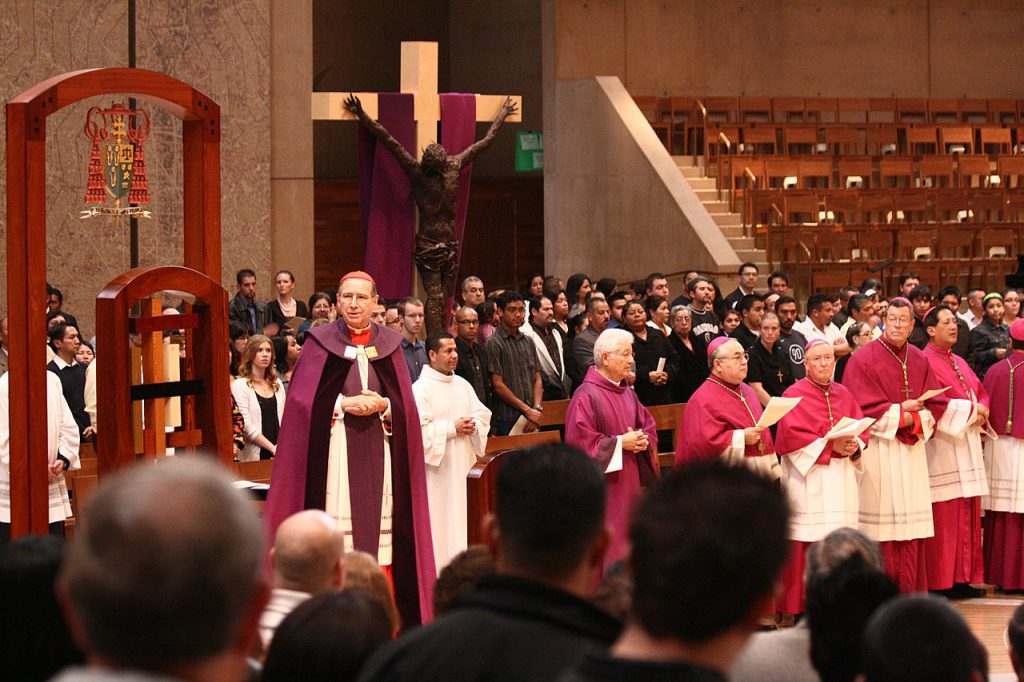
Published July 4, 2019
The United States Conference of Catholic Bishops (USCCB) passed four measures related to the abuse crisis at their general assembly in Baltimore last month. Given the degree to which episcopal malfeasance is the hallmark of the abuse crisis in its current iteration, and given how much expectation there has been for our bishops to “do something” about the crisis, it’s worth looking more closely at the steps that they have taken.
First, the bishops voted to approve a short document titled, “Affirming Our Episcopal Commitments,” by which they essentially promise to strive to do all the things everyone knows they should already be doing: livingly chastely, reaching out to abuse victims, implementing the reforms laid out by Rome, and only proposing “truly suitable” candidates for episcopal office. That these commitments needed to be publicly affirmed at all speaks to just how low episcopal credibility has fallen.
Second, last November, the USCCB hoped to establish an independent, third-party system for handling allegations of abuse by bishops. Rome asked them to forego voting on the measure back then, but it has now been passed. A national system will be established to accept – by phone and other means – allegations of abuse against bishops. These allegations would then, as required by Vos estis lux mundi, be directed to the metropolitan archbishop in the ecclesial province in which the accused bishop lives. The full details of how the system will operate have not been finalized, but the bishops have approved the development of the system and should vote on a “final product” when they meet again this November. The system will have to be up and running no later than May 31, 2020 – a date set by Rome.
The third measure approved by the bishops, and the most important, is a document laying out directives for the implementation of Pope Francis’s recent motu proprio, the aforementioned Vos estis lux mundi. While there were few surprises in these directives – the bishops are mostly following the Holy Father’s lead here – there are some important elements worth pointing out.
Vos estis establishes a “Metropolitan model” for investigating allegations of abuse or malfeasance by bishops (including allegations made through the new third-party reporting system) and allows, but does not require, lay participation in the investigation of these allegations.
The bishops determined that they couldn’t require what the motu proprio only allows, in this case, lay participation in the investigation of allegations against bishops. Nevertheless, the directives make clear the conference’s strong preference (and establish a strong moral expectation) that any bishops tasked with investigating another bishop ought to make full use of lay expertise. This both ensures the proper handling of allegations and investigations and offers a partial solution to the problem of “bishops investigating bishops” – an approach in which there remains little or no confidence.
The USCCB directives call for lay involvement at every possible stage of the process. The directives say that each Metropolitan should appoint a layperson to receive allegations of episcopal misconduct when they are made; that each Metropolitan should appoint an investigator from among the laity; the investigating bishop should rely on experts chosen predominantly from the laity.
“Should” is not “must” but the clear expectation – the moral expectation if not the legal requirement – is that lay experts will be involved at every step of the process: from collecting reports and allegations, to receiving those allegations at the Metropolitan level, to the investigation, and on up until the case is forwarded to the nuncio and then on to Rome. What happens at that point is not up to the USCCB.
While lay involvement in the reporting process and investigation is important, it should still be noted that the mere absence of ordination is not a guarantee of competence or integrity. The ultimate efficacy – and credibility – of the bishops’ implementation of Vos estiswill depend greatly on which lay men and women are chosen to assist in the handling of these reports and allegations.
The fourth and final measure passed by the bishops is the “Protocol Regarding Available Non-Penal Restrictions on Bishops.” The protocol doesn’t include anything radically new, but it lays out for bishops what recourse they have for handling retired or emeritus bishops who – because of past failures in handling (or mishandling) abuse – are a source of scandal in the dioceses they once led.
Bishops can’t punish their predecessors, only Rome can do that. But a bishop does control who exercises ministry within his own diocese, and that includes the ministry of other bishops. It’s telling that enough of our bishops want to know what options are at their disposal that the conference felt compelled to take up the matter.
We have been hearing for years that the worst of the clerical sexual abuse and episcopal cover-up occurred decades ago. The past year has presented some rather glaring counter-examples, but it remains largely true. Most bishops who knowingly shuffled predator priests from parish to parish tend to have retired (or been relieved) long ago. But that doesn’t mean they’re gone.
The most noteworthy example of the “problematic emeritus” came in 2013 when Archbishop Jose Gomez, announced that he was putting restrictions on which ministries his predecessor, Cardinal Roger Mahony, was allowed to exercise within the Archdiocese of Los Angeles. Mahony, knowing that his red hat ensured a certain immunity from Gomez’s slap down, more or less carried on doing as he pleased. But the rebuke clearly stung.
The new protocol for handling retired bishops includes a provision that, with cause, the president of the USCCB can prohibit certain bishops from attending the conference’s plenary assemblies. As it happens, Archbishop Gomez is expected to be elected as the next USCCB president later this year. It would send quite a message if, at the outset of his term, the new USCCB President were to tell Mahony – and other emeritus bishops with especially egregious records on abuse – that they’re no longer welcome.
© 2019 The Catholic Thing.
Stephen P. White is a fellow in Catholic Studies at the Ethics and Public Policy Center in Washington.











